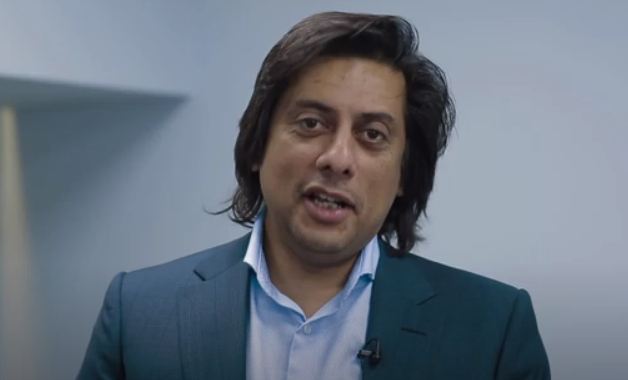A pro-Palestine activist will once again face a disciplinary committee after the High Court quashed a verdict which cleared him of antisemitism charges.
This week the High Court ruled that a General Pharmaceutical Council (GPC) panel “had erred” in ruling last year that the accusation that Nazim Ali had made antisemitic comments was “not proven.”
The GPC committee judged the comments to be offensive but not antisemitic and issued Ali with a warning on the grounds that his behaviour amounted to misconduct.
But this week the High Court quashed that verdict which means that Ali will once again face a disciplinary committee and could face being struck off as a pharmacist.
Last year the GPC hearing investigated if Ali, who has been a pharmacist for 28 years, made antisemitic remarks which brought his profession into disrepute.
At the 2017 Al Quds March in London Mr Ali had said, among other things, that:
- Zionists are not Jews
- Rabbis from the Board of Deputies of British Jews were imposters
- And the Tory party and some of its Zionist supporters were responsible for the Grenfell Tower disaster
This week Mr Justice Johnson, at the Royal Courts of Justice, agreed with the Professional Standards Authority for Health and Social Care that the panel last year took the wrong approach when deciding whether Ali’s words were antisemitic.
Subscribe to our newsletter and stay updated on the latest news and updates from around the Muslim world!
Instead of considering the “objective meaning” of the words in their context, the panel took account of Mr Ali’s “subjective intention” and his “good character” as being factors relevant to an assessment of the meaning of the words when they should not have.

Moreover, the panel considered individual phrases in isolation without taking account of their cumulative impact, the judgment said.
Mr Justice Johnson said: “I therefore agree that the FPC (Fitness to Practise Committee) erred in each of the respects suggested in the grounds of appeal. It wrongly took account of Mr Ali’s intention when assessing whether his language was objectively antisemitic. It wrongly took account of his character when assessing whether his language was objectively antisemitic. And it erroneously failed to assess whether the remarks, considered cumulatively, were objectively antisemitic, as opposed to whether each remark in isolation was antisemitic.”
Following the verdict the Islamic Human Rights Commission (IHRC), which organised the rally at which Mr Ali spoke, said the judgment showed a lack of robustness by the courts and professional authorities over issues surrounding support for Palestine.
The IHRC added that the judgment sets a worrying precedent that context and intention are not relevant in defining what is antisemitic, opening the way for a wider witch-hunt against pro-Palestine activists in their professional settings.
Chair of IHRC, Massoud Shadjareh, said: “Pro-Palestine activists could be vulnerable to being disciplined by professional regulatory bodies according to a problematic standard, and for political activities carried out outside their members’ professional lives. Needless to say, this constitutes an unacceptable impediment to freedom of expression and association.”
On the other hand, the pro Israel Campaign Against Antisemitism, which has been instrumental in pursuing the case against Ali, said the judgment was step in the right direction.
Stephen Silverman, Director of Investigations and Enforcement at Campaign Against Antisemitism, said: “The High Court has agreed with us that the decision on whether Nazim Ali’s remarks at the pro-Hizballah ‘Al Quds Day’ march in 2017 were antisemitic was woefully inept. As we hoped, the High Court has now quashed the original decision of the Fitness to Practise Committee of the General Pharmaceutical Council in relation to Mr Ali’s antisemitism and ordered it to reach a new decision. This is exactly why we referred the matter to the Professional Standards Authority.
“We commend the Professional Standards Authority and the General Pharmaceutical Council itself for recognising the injustice of the earlier decision. We hope that the Fitness to Practise Committee will arrive at a new decision that accepts that Mr Ali’s comments were antisemitic and that on that basis the previous sanction was inadequate and wrong. The road to justice in this case has proved long and winding, but we are again heading in the right direction.
“We said that we would not allow this injustice to stand and we are delighted by this new judgement. Campaign Against Antisemitism will always be unrelenting in pursuit of justice.”
And Duncan Rudkin, Chief Executive of the General Pharmaceutical Council, said: “We agree that the Fitness to Practise Committee erred in its approach to deciding whether or not the comments made by Mr Ali were antisemitic and we did not contest the appeal by the PSA. We will make sure the learnings from this case and the High Court judgment are shared across the organisation and our committees. The further Fitness to Practise hearing for Mr Ali will be scheduled at the earliest opportunity.”





















